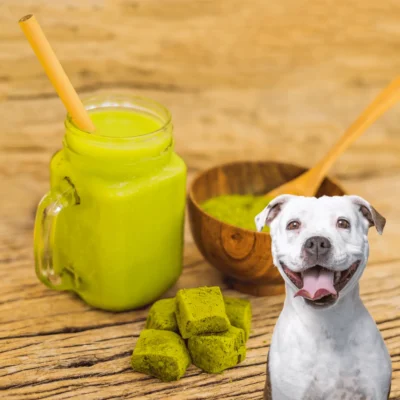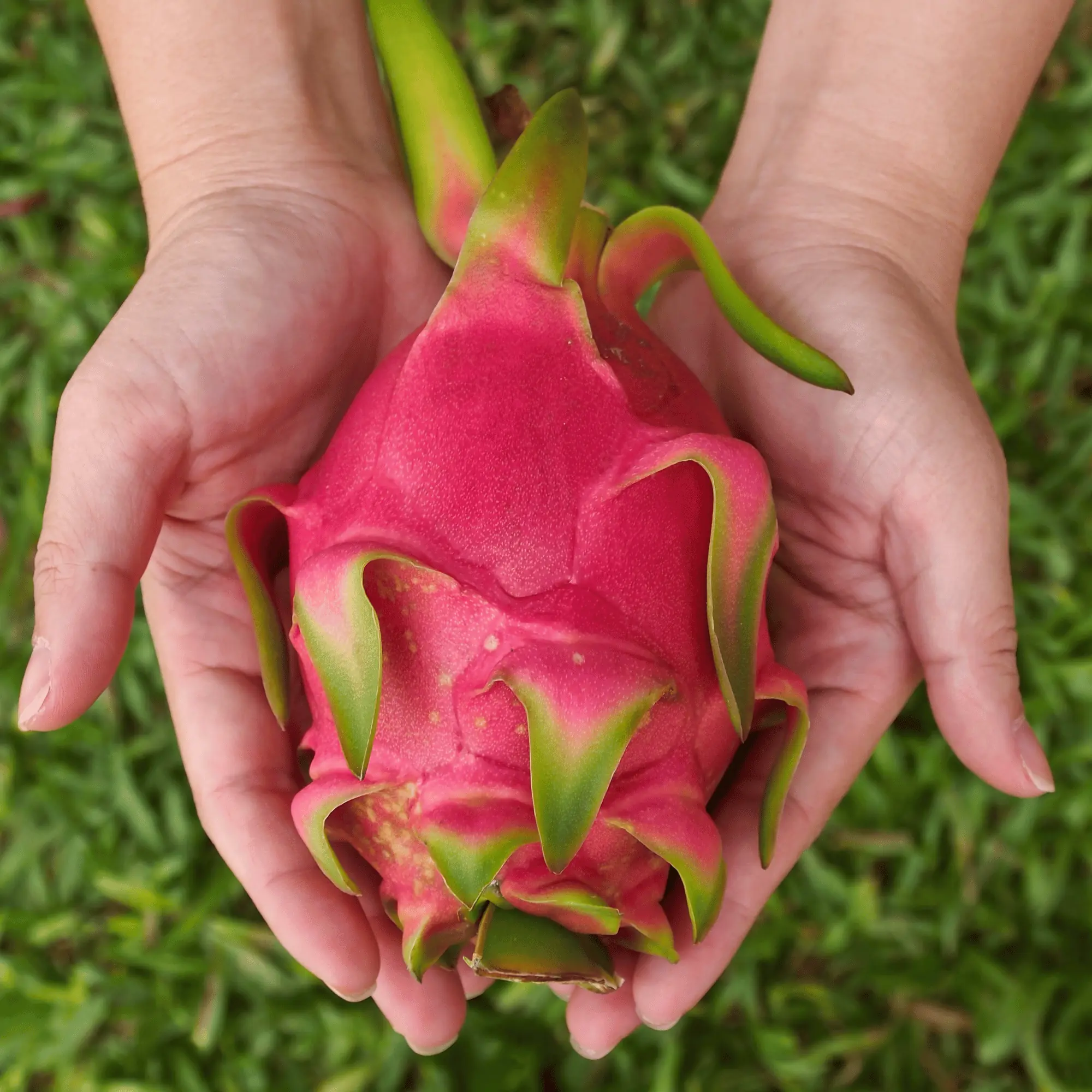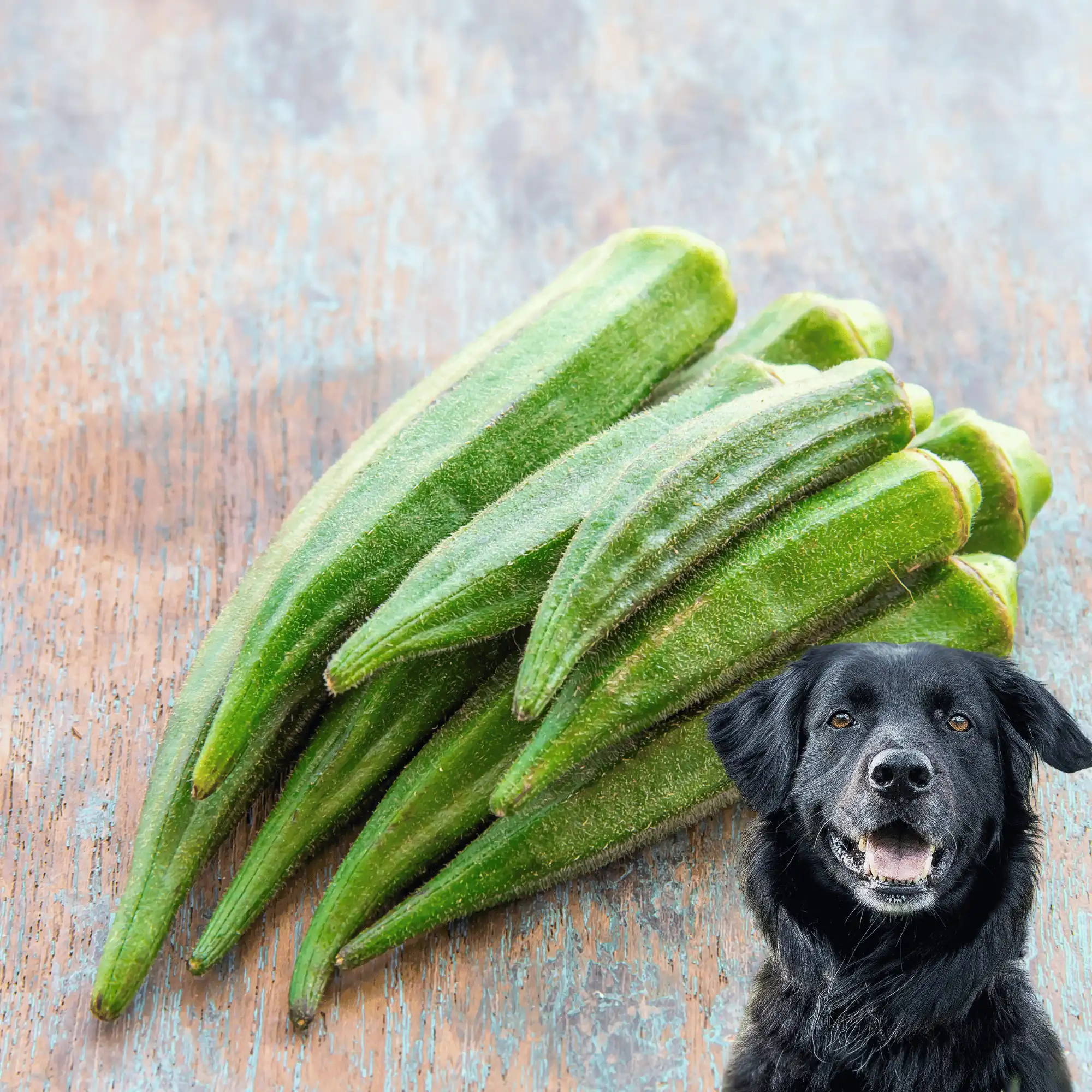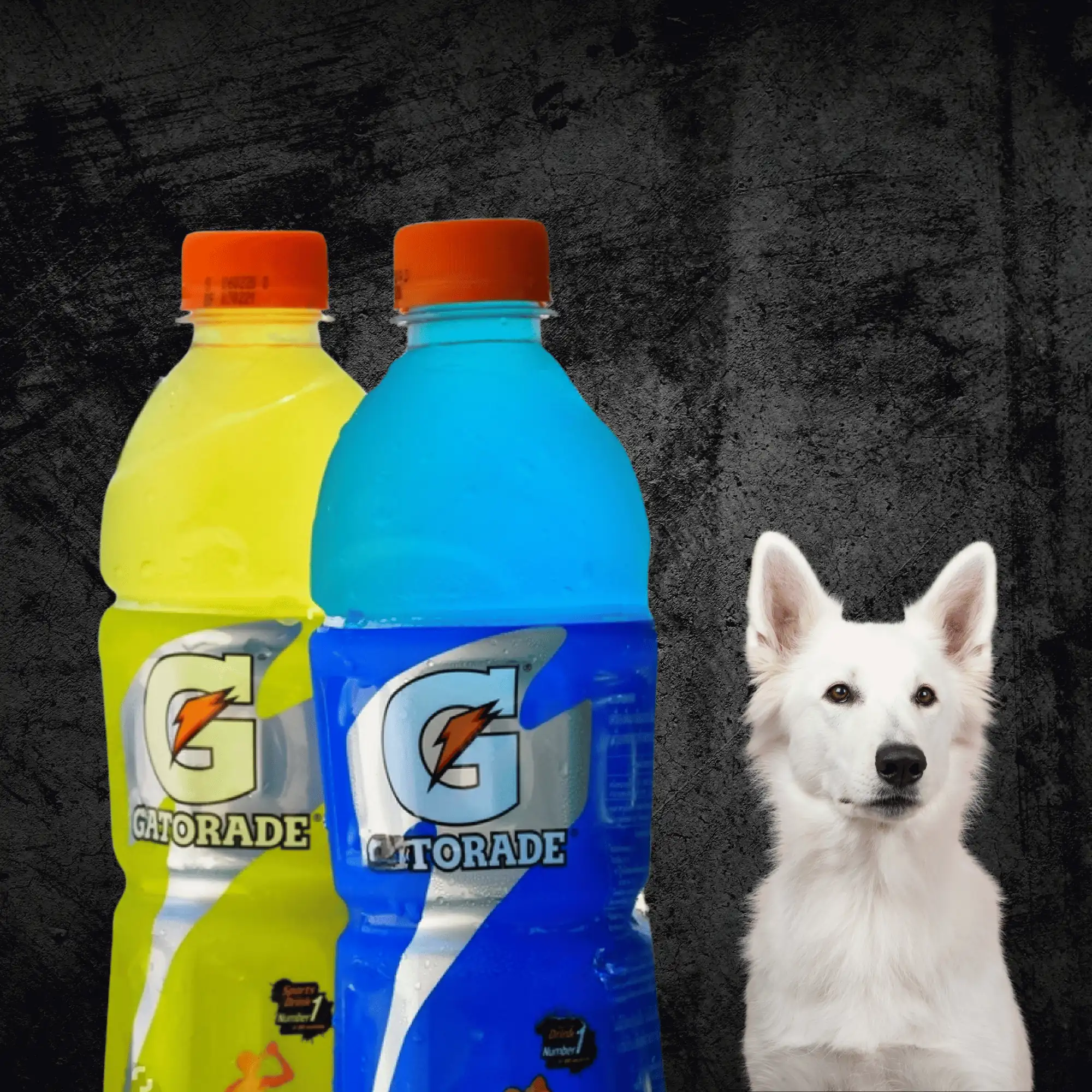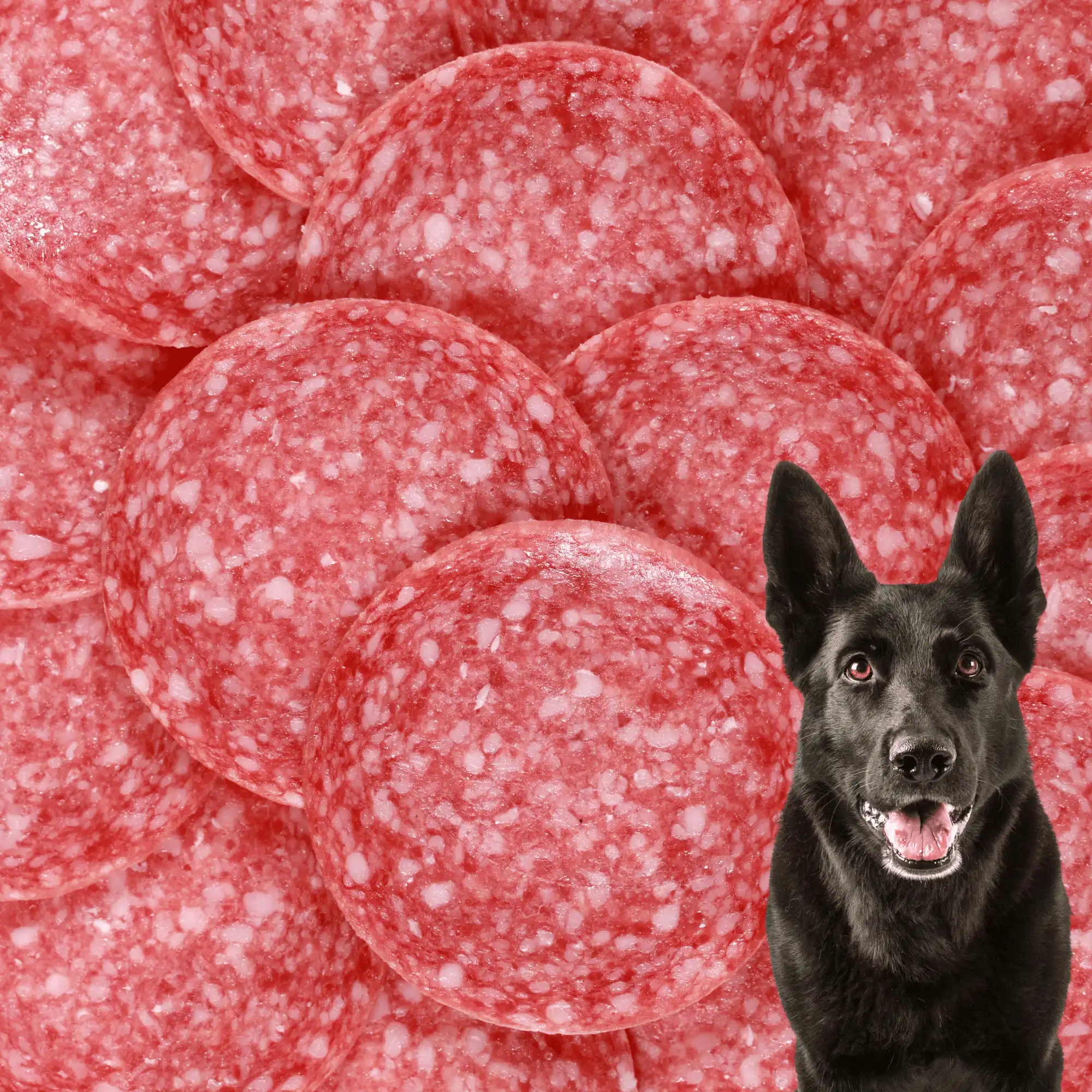Matcha is known for its distinctive flavor, which can be rich, savory, or slightly bitter. It is often used in traditional Japanese tea ceremonies, and it has also gained popularity as an ingredient in various culinary applications, such as in smoothies, desserts, and savory dishes. But what about dogs? Before considering replacing your dog’s water bowl with a chawan, it’s important to ask: Can dogs eat matcha?
This article aims to explore the potential effects of matcha powder on dogs, along with a few benefits. So, place that matcha bowl up on a high countertop, and let’s delve into the discussion!
Here are the topics we’re going to discuss in this blog post:
- What is matcha?
- Is matcha good for dogs?
- What is caffeine?
- Why is matcha bad for dogs?
- Amount of Caffeine in matcha sweets
- Is matcha bad for dogs’ teeth?
- Matcha Benefits for Dogs
- What to do if your dogs have caffeine
What is Matcha?
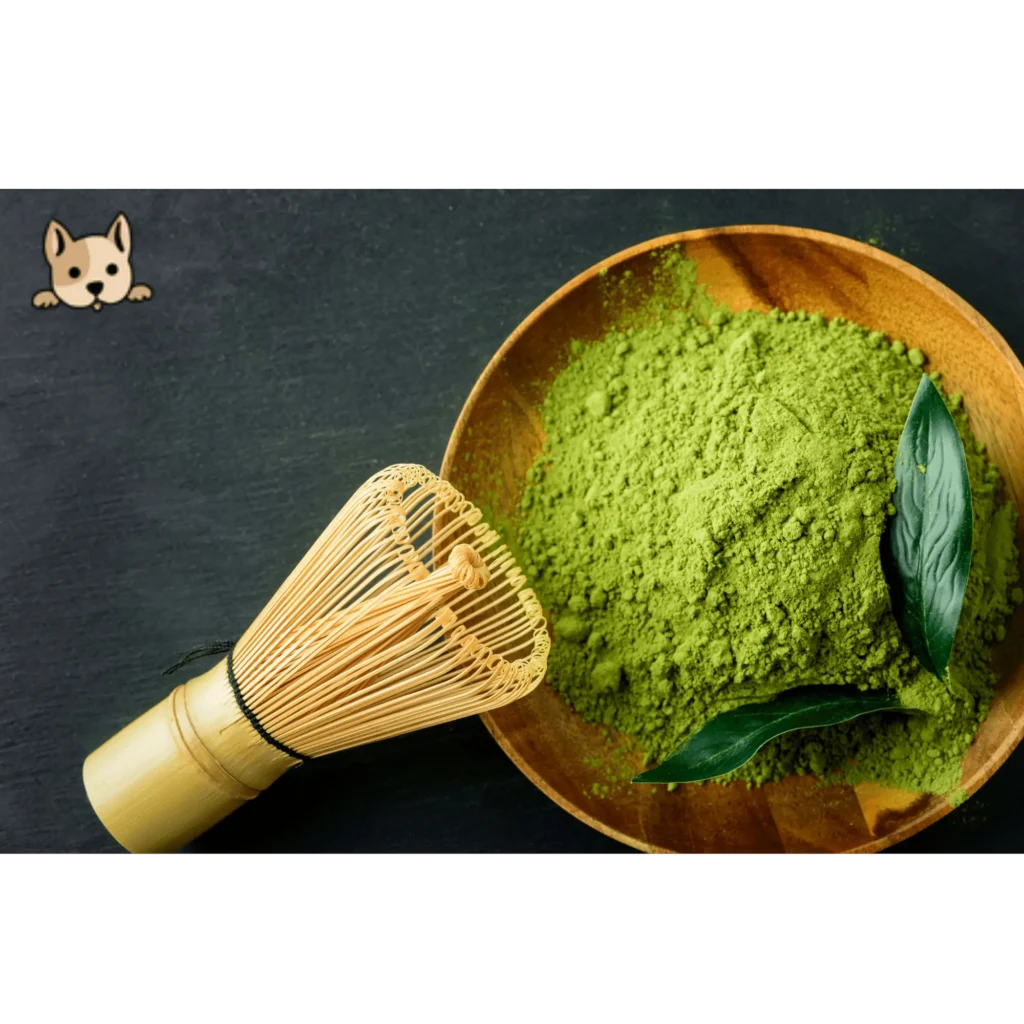
Matcha, originating from Japan, is a distinctive form of powdered green tea. It is made from shade-grown tea leaves, a process that enhances the flavor and texture of the leaves. The leaves are ground into a fine powder, giving rise to matcha.
The preparation of matcha involves whisking the powdered tea with hot water, creating a frothy and vibrant green beverage. Unlike traditional green tea, where leaves are steeped and then discarded, with matcha, you consume the entire tea leaf.
Beyond its unique taste, matcha is celebrated for its potential health benefits. It is rich in antioxidants, particularly catechins like epigallocatechin gallate (EGCG), which have been associated with various health-promoting effects. However, it’s important to note that matcha does contain caffeine, so it’s not advisable for dogs.
Is Matcha Good for Dogs?
No, matcha is not considered good for dogs. While matcha is a form of green tea and contains some beneficial compounds, it also contains caffeine, which can be harmful to dogs. Caffeine is toxic to dogs and can lead to various adverse effects, including restlessness, increased heart rate, tremors, vomiting, and even more severe conditions such as seizures or death in extreme cases.
While an occasional small amount of caffeine, such as an accidental sip, may not cause significant harm, it is crucial to understand the potentially hazardous side effects. Therefore, it’s best to avoid giving matcha or any caffeinated beverages to dogs to ensure their safety and well-being. First, let’s delve into what caffeine is.
What is Caffeine?

Caffeine is indeed a methylxanthine alkaloid, and it belongs to a class of stimulant compounds found in various plants, including coffee beans, tea leaves, and cacao beans used to make chocolate.
As a stimulant, caffeine affects the central nervous system by blocking the action of adenosine, a neurotransmitter responsible for promoting relaxation and sleepiness.
By inhibiting adenosine, caffeine increases the release of other neurotransmitters, such as dopamine and norepinephrine, leading to increased alertness, improved mood, and heightened physical activity. Additionally, caffeine can stimulate the heart, resulting in an elevated heart rate and increased blood pressure.
While these effects can be relatively mild and beneficial for humans in moderation, it’s important to note that pets, such as dogs, metabolize caffeine differently and can be more sensitive to its adverse effects. That’s why it’s crucial to keep caffeine-containing products away from pets to prevent potential toxicity.
Why is Matcha Bad for Dogs?
Matcha powder, being a concentrated form of green tea, contains caffeine, and this can be harmful to dogs. Dogs are more sensitive to stimulants like caffeine compared to humans. Even small amounts of matcha can result in symptoms such as restlessness, increased heart rate, vomiting, diarrhea, tremors, and, in severe cases, seizures.
Dogs lack certain enzymes in their liver that humans have, making them less efficient at metabolizing caffeine. This results in a prolonged duration of caffeine in their system, increasing the risk of toxicity.
Dogs may be exposed to caffeine from multiple sources, such as chocolate, coffee, or tea. The cumulative effect of ingesting caffeine from different sources can amplify the risk of toxicity.
To ensure the safety and well-being of dogs, it’s crucial to keep matcha and other caffeinated products out of their reach. In the event of accidental ingestion or if a dog exhibits any signs of distress, immediate veterinary attention is essential.
Amount of Caffeine in Matcha Sweets:
The amount of caffeine in matcha sweets can vary depending on several factors, including the type and amount of matcha used in the recipe. Matcha itself is a powdered green tea that contains caffeine, but the concentration can differ based on factors like the grade of matcha and how it’s incorporated into the sweet.
On average, a teaspoon of matcha powder (about 1 gram) can contain roughly 30 to 70 milligrams of caffeine. However, this is a general estimate, and the actual caffeine content can vary.
When it comes to matcha sweets, such as cakes, cookies, or other desserts, the overall caffeine content will depend on the quantity of matcha powder used in the recipe and the serving size of the sweet. If you’re concerned about the caffeine content in matcha sweets, it’s a good idea to check with the manufacturer or the person preparing the sweets for more specific information.
Is Matcha Bad for Dogs Teeth?
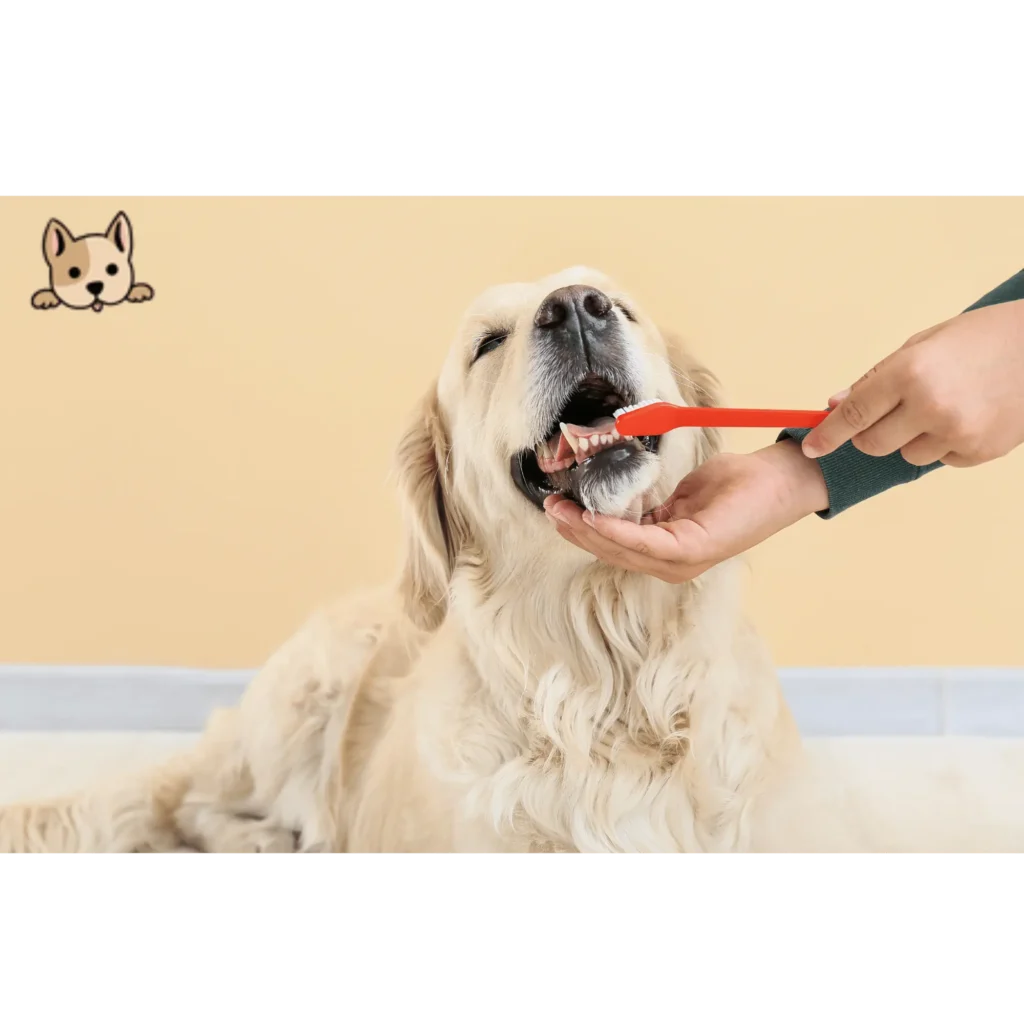
Dental health is a vital aspect of a dog’s overall well-being. If you’re considering the impact of matcha on your dog’s dental health, here are some points to consider:
1. Tannins in Matcha:
Matcha, like other teas, contains tannins. While the tannin content in matcha is lower compared to some other teas, it’s worth noting that tannins can contribute to staining on both human and animal teeth. Additionally, the acidic nature of matcha may potentially contribute to enamel erosion over time.
While dogs are less prone to dental issues like cavities compared to humans, staining and prolonged exposure to acidic substances can still harm their dental health.
2. Fluoride in Matcha:
Matcha naturally contains fluoride, a mineral known for its dental benefits. In small amounts, fluoride can help strengthen tooth enamel, making it more resistant to decay. However, excessive consumption of fluoride can lead to conditions like fluorosis, impacting tooth and bone health.
It’s crucial to avoid giving dogs large amounts of matcha or any other fluoride-containing substances to prevent potential health issues.
Matcha Benefits for Dogs:
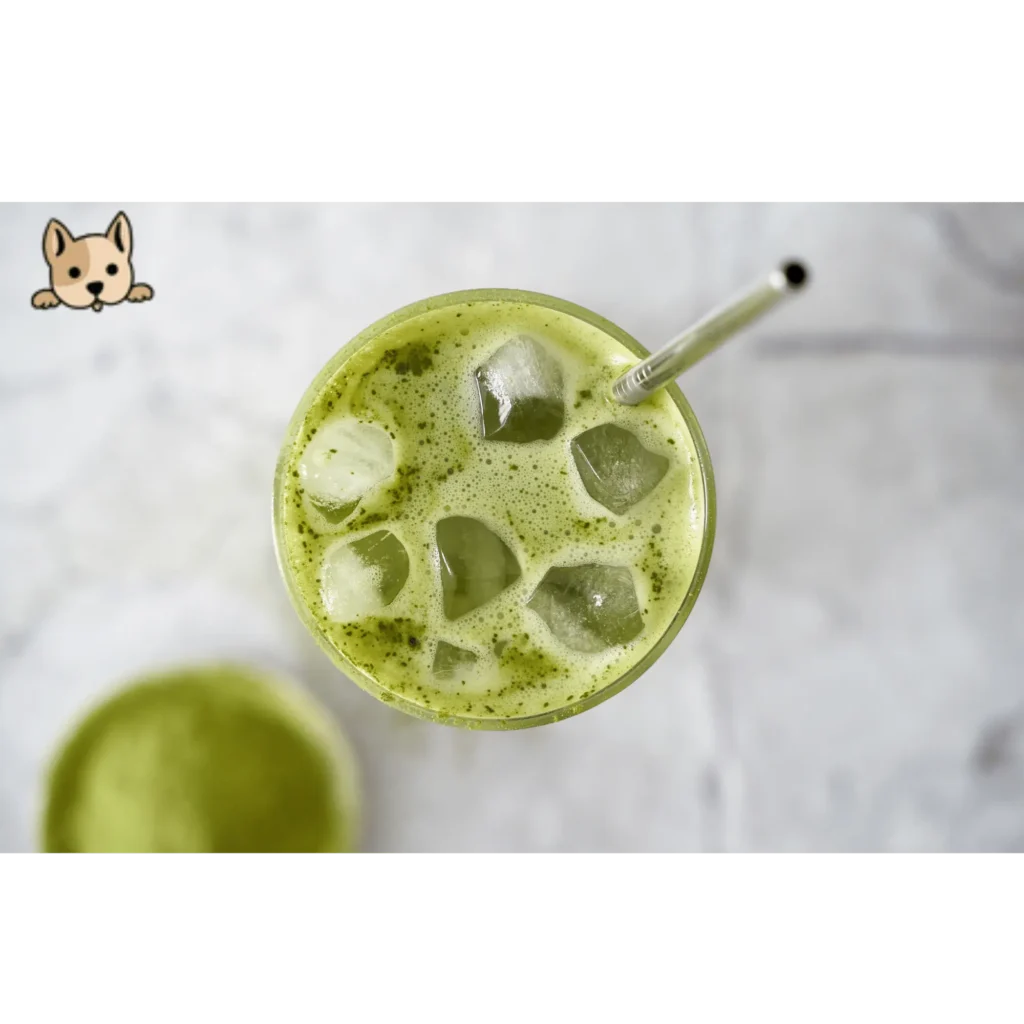
While it’s generally not advisable to give matcha directly to dogs due to the potential harm from caffeine and other components, it’s interesting to explore some of the potential benefits of certain compounds found in matcha that might indirectly contribute to a dog’s well-being.
Here are some potential advantages:
1. Antioxidants Properties:
Antioxidants help protect cells from damage. This protection may contribute to overall cellular health in dogs, potentially reducing the risk of certain diseases associated with oxidative stress.
Antioxidants are known to support the immune system by neutralizing free radicals that can compromise the body’s defences. A healthy immune system is crucial for the overall well-being of dogs.
2. Anti-Inflammatory Effects:
Matcha, a type of green tea, contains compounds with potential anti-inflammatory effects, primarily attributed to its rich content of polyphenols, including catechins. The anti-inflammatory properties of matcha’s polyphenols may help mitigate inflammation in the joints, providing some relief for dogs with arthritis or other joint issues.
Inflammatory responses are involved in various skin conditions and allergies in dogs. Matcha’s anti-inflammatory compounds may help alleviate symptoms associated with allergic reactions or inflammatory skin conditions.
3. Weight Management:
Matcha is indeed low in calories and can be considered a healthier alternative to sugary beverages or treats for humans. However, when it comes to dogs, it’s essential to note that their nutritional needs and digestive systems differ significantly from those of humans. While some human foods may have health benefits for people, they can pose risks to dogs due to differences in metabolism and tolerance.
Regular exercise is a crucial component of weight management for dogs. Ensure that your dog gets an appropriate amount of physical activity based on their breed, age, and health condition.
4. Calming Effects:
Matcha contains L-theanine, an amino acid known for its potential calming and relaxing effects. L-theanine is found in tea leaves and is known to promote relaxation without causing drowsiness.
While the calming effects of L-theanine in matcha are often discussed in the context of human consumption, some pet owners have considered incorporating matcha into their dogs’ diets for its potential calming properties.
What to Do If Your Dogs Have Caffeine:
If you suspect your animal has consumed an excessive amount of caffeine, it is imperative to contact a veterinarian immediately. Caffeine gets into the body fast—around 45 minutes for 99% absorption. When seeking veterinary help, provide detailed information about what your dog ingested, when it happened, and the quantity.
It’s important to recognize that certain dogs may be more vulnerable to the effects of caffeine, especially:
- Puppies and small-sized dogs
- Senior dogs
- Dogs with pre-existing heart conditions
Recognizing the symptoms of caffeine overdose in dogs is crucial, as they may manifest within 2 hours of ingestion. Keep a close eye on your pet for signs such as vomiting, diarrhea, panting, hyperactivity, excessive thirst and urination, elevated blood pressure, or abnormal heart rhythm, as well as seizures or tremors. If you observe any of these symptoms, it’s imperative to seek prompt veterinary attention.
Conclusion:
In conclusion, while matcha boasts potential health benefits for humans, it is not suitable for dogs due to its caffeine content. Caffeine can lead to adverse effects in dogs, including restlessness, increased heart rate, vomiting, diarrhea, and even seizures. The unique metabolic differences in dogs make them more sensitive to the harmful effects of caffeine.
Considering the potential risks and lack of an antidote for caffeine poisoning, it is crucial to keep matcha and other caffeinated products out of reach for dogs. In the event of accidental ingestion, immediate veterinary attention is necessary to address symptoms and mitigate potential harm.
While matcha may offer certain antioxidants and anti-inflammatory properties, exploring these benefits for dogs should be approached cautiously. It’s essential to prioritize a balanced and appropriate diet tailored to a dog’s nutritional needs.
Ultimately, the safety and well-being of dogs should be the top priority, and avoiding the introduction of matcha into their diet is a prudent decision to prevent potential health issues and ensure a happy and healthy life for our canine companions.
FAQs:
Is matcha tea safe for dogs?
No, matcha tea is not considered safe for dogs. Matcha contains caffeine, which is toxic to dogs and can lead to various adverse effects such as restlessness, increased heart rate, vomiting, diarrhea, and, in severe cases, seizures. It’s best to avoid giving any caffeinated beverages, including matcha tea, to dogs to ensure their safety and well-being.
Can dogs eat matcha green tea ice cream?
No, dogs should not consume matcha green tea ice cream, or any ice cream for that matter. While matcha itself is not recommended for dogs due to its caffeine content, traditional ice cream often contains ingredients like sugar and dairy, which can be problematic for dogs. Additionally, the cold temperature and richness of ice cream may not agree with a dog’s digestive system.
Is matcha powder safe for dogs to eat?
No, matcha powder is not safe for dogs to eat. It contains caffeine, which can lead to adverse effects in dogs, including restlessness, increased heart rate, vomiting, diarrhea, tremors, and seizures.
Are there any health benefits to matcha for dogs?
While matcha may offer health benefits for humans, it is not recommended for dogs due to the potential harm from caffeine. Dogs have different nutritional needs, and introducing substances like matcha into their diet may pose risks to their health.
What should I do if my dog accidentally eats matcha?
If you suspect your dog has ingested matcha, it’s crucial to contact a veterinarian immediately. Provide details about the incident, including the quantity ingested, to facilitate prompt and appropriate treatment.






